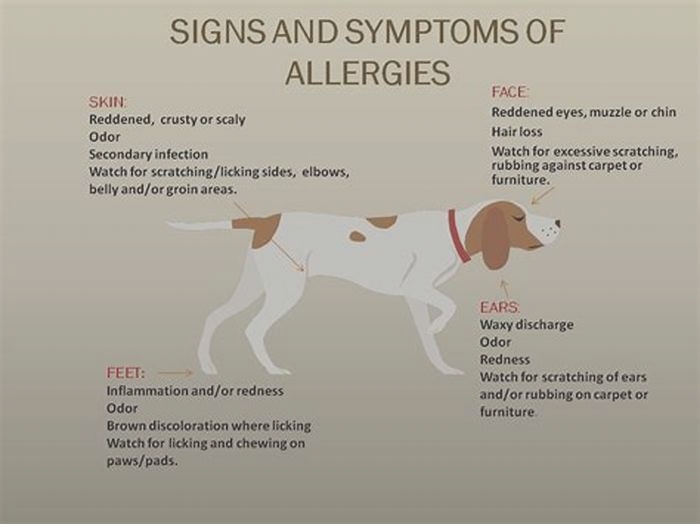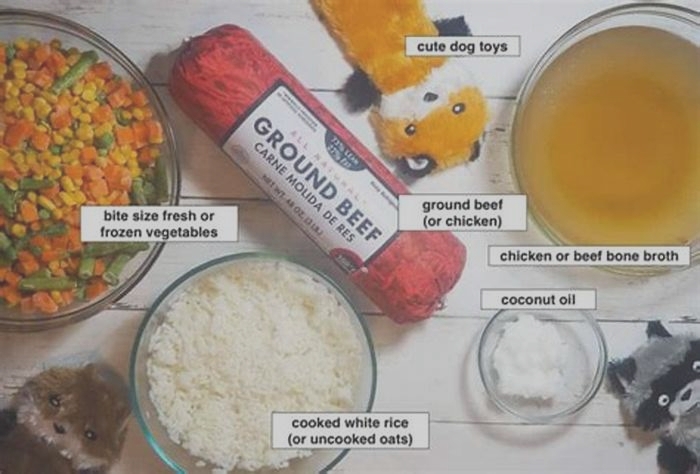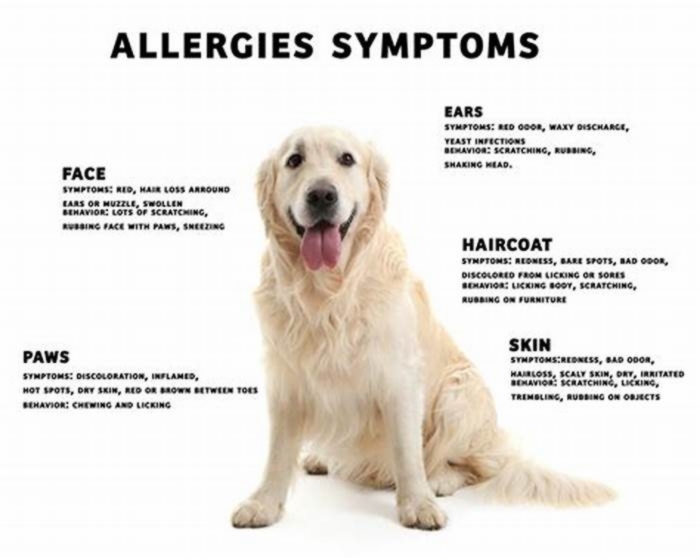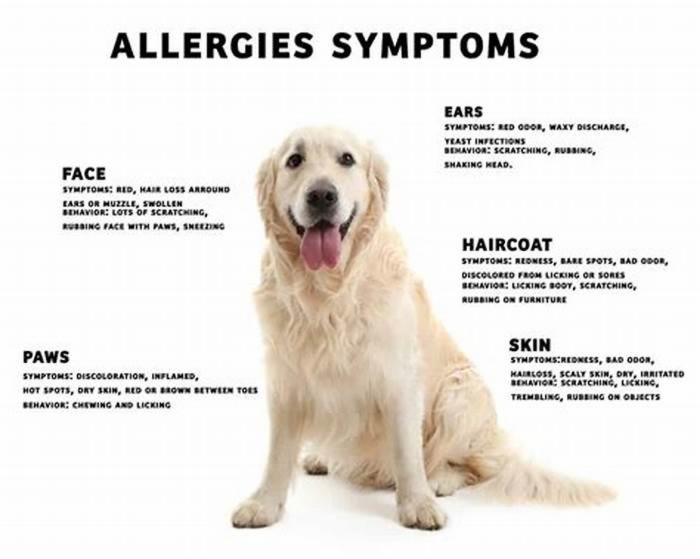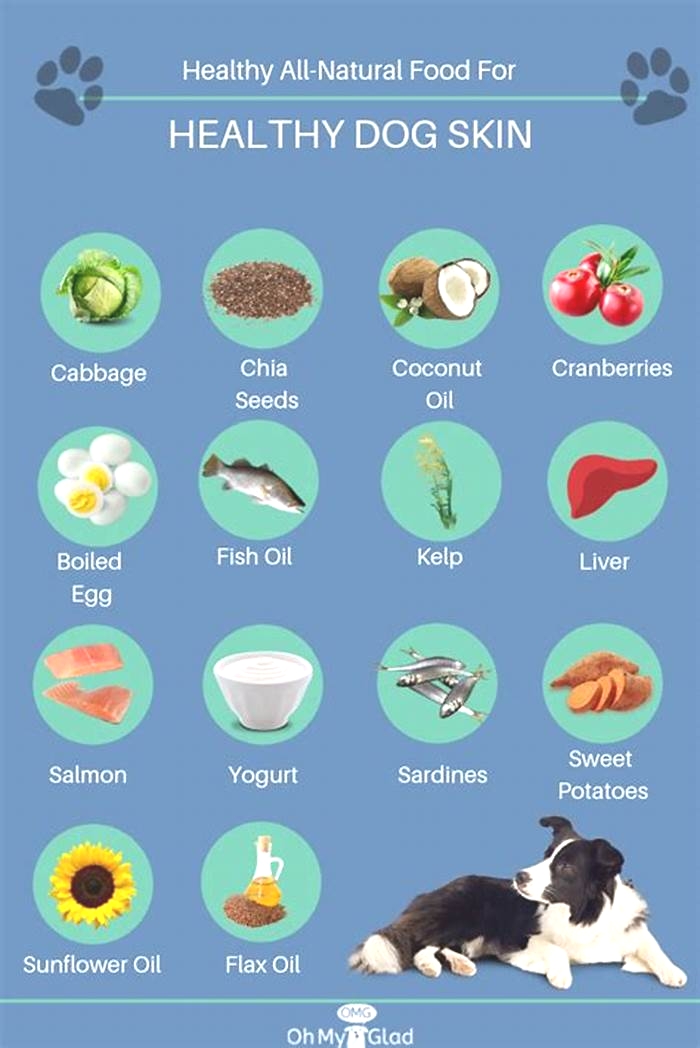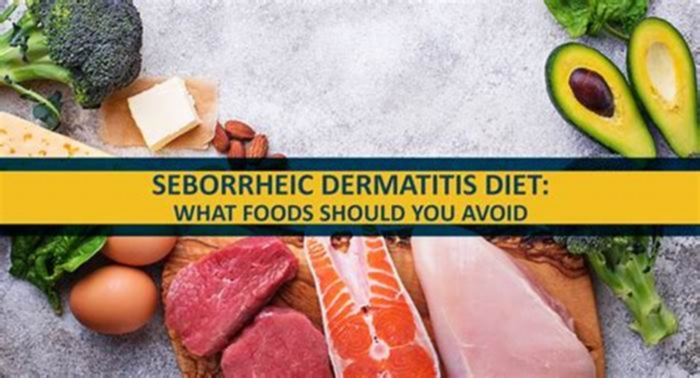What is the best oil to mix with dog food
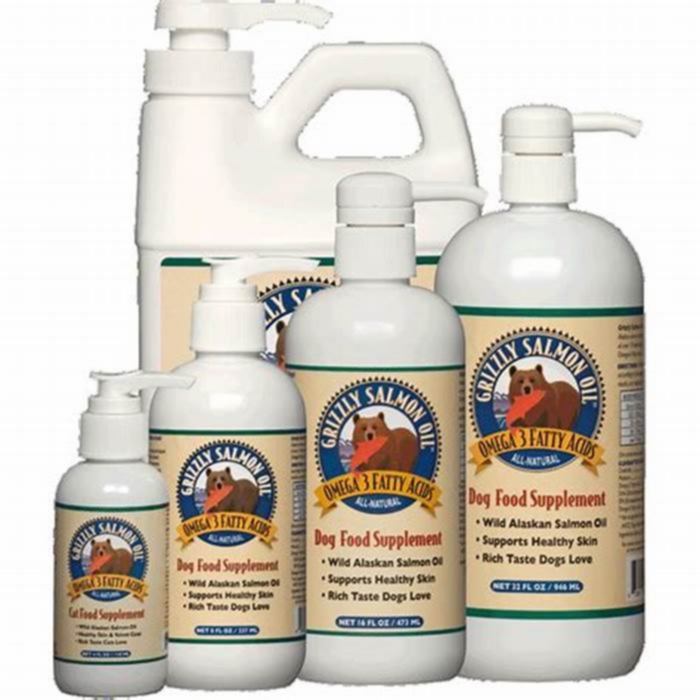
for dogs
Despite what you have read on the internet or seen from TV personalities, soybean, corn, or canola oils are much better choices for homemade dog food than coconut, flaxseed, olive, or walnut oils.
Why?
The answer is bioavailable essential fatty acids. The essential, omega-6 fatty acid, linoleic acid, is extremely important for human and dogs immune system to fight bacterial, fungus, and viral infections. It is the primary essential fatty acid in the walls of skin cells that keeps skin waterproof. Linoleic acid keeps skin moist and keeps fur full and healthy.
The other bioavailable, omega-3 essential fatty acid in soybean, corn, and canola oil is alpha-linolenic. This fatty acid makes sure omega-6 fatty acids dont get out of control producing chemicals that kill or inhibit infectious agents. Alpha-linolenic acids also temper allergic reactions by reducing histamine release that causes itching and scratching in allergic dogs. It also reduces the inflammation in diseases like joint arthritis and inflammatory intestinal conditions. Alpha-linolenic acid also gives your dog that soft, shiny fur.
But dont other oils contain linoleic acid and alpha-linolenic acid?
Yes, but not in a form the body can readily use!
Coconut, cottonseed, flaxseed, olive, palm, peanut, safflower, sesame, sunflower, and walnut oils contain essential fatty acids in an undifferentiated or unrefined state. They are like pumping crude oil straight from the well into your cars tank. Unrefined oil will clog and destroy your cars engine. Crude oil has to be refined to gasoline before your car can use it. The body has to refine the fatty acids into bioavailable form in oils that have undifferentiated fatty acids.
You and all other mammals, including your dog, do that very poorly. So poorly, that dogs fed coconut, flaxseed, olive oil or the other oils may eventually lose fur, lose the softness and luster of their fur, and may develop sores on their skin.
What cannot be seen is the effect on the immune system and susceptibility to infection because of depressed immune function. Coconut oil and olive oils are the worst because not only are the essential fatty acids in an unrefined form, these oils but also have woefully small amounts of unrefined linoleic and linolenic fatty acids.
The fatty acids in soybeans, corn, and canola are bioavailable.
Think of the fatty acids in soybeans, corn, and canola like gasoline because they are preformed and immediately available, so when pumped into your dogs tank will give her optimum performance without depending on the body for unpredictable conversion.
At Hearthstone Homemade, we prefer soybean oil. Corn oil is very high in preformed linoleic fatty acid but has small amounts of preformed alpha-linolenic fatty acid. Canola oil is just the opposite, with large amounts of preformed alpha-linolenic fatty acid and small amounts of preformed linoleic fatty acid. Soybean has the perfect ratio of preformed fatty acids.
But we dont choose just any soybean oil. Our program features LifeOil. LifeOil brand is made from GMO-free soybeans and is expeller-pressed to avoid intense heat that degrades essential fatty acids and avoids the toxic chemicals used in chemical extraction of the oil from soybeans. You can feel assured your dog is getting the best source of essential fatty acids for maximum health.
4 Healthy Oils To Add To Your Dog's Diet
By Andrew Daniels
Just like you, your dog may not be getting all the necessary nutrition he needs from eating his regular diet. While standard dog food can certainly come packed with plenty of essential nutrients, you can supplement your dogs dietary regimen with certain healthy oilsjam packed with Omega-3 and Omega-6 fatty acidsto promote optimum heath.
In this simple guide, well show you how to pick these natural oils for dogs, and offer best practices and feeding tips.
What are the healthiest oils for dogs?
Fish oil:Fish oil contains EPA and DHA, omega-3 fatty acids that help arthritis, and also has some anti-cancer effects, says Nancy Scanlan, DVM, CVA, MSFP, and executive director of the American Holistic Veterinary Medical Foundation. Fish oil can also improve your dogs memory.
The primary reason I recommend fish-oil based omega-3 fatty aids is to yield a natural anti-inflammatory effect that can help reduce overall inflammation in the body and potentially decrease my patients reliance on medications aimed at reducing inflammation and pain, says Dr. Patrick Mahaney, VMD, CVA, CVJ, and a certified veterinary acupuncturist with California Pet Acupuncture and Wellness (CPAW).
Krill oil:While fish oil usually comes from fish higher on the food chain, like salmon, krill oil hails from tiny shrimp-like organisms that rank a little lower. This makes krill oil less likely to be contaminated with mercury, Dr. Scanlan says. It also contains EPA and DHA, and will help give your pet healthier joints and skin, in addition to other benefits.
All dogs are omnivores that lean towards the carnivorous side, so they best absorb non-vegetarian-based oils like fish and krill, explains Dr. Mahaney.
Coconut oil:Extra-virgin coconut oil has become a popular choice for humans because its a healthier alternative to more processed saturated and trans fats, and the same applies to dogs. Coconut oil has also been shown to help dogs lose weight, give them more energy, and offer relief to dry skin. Bonus: It will help improve your dogs bad breath!
Flaxseed oil:This oil is high in alpha linolenic omega-3s, which puts it in the same ballpark as wild fish when it comes to boosting heart health. Like many of the other healthy oils, flaxseed oil also helps with mobility for arthritic dogs, and can aid in blood pressure and kidney function.
How can I serve my dogs healthy oils?
Most oils come in either capsule form or free oil. But a jar of oil, once opened and exposed to the air, can become rancidso capsules are usually a better way to go, says Dr. Scanlan.
However, it could depend on your dogs taste preferences. Hearty-eating dogs may readily consume a capsule or allotted portion of liquid out of their food, says Dr. Mahaney. Most liquid oils mix best with moist food, but you can still pour them over dry food like kibble, he adds.
Capsules also tend to best be consumed out of moist food. Pets that are unwilling to consume the capsule may take it in liquid form if the capsule is pierced, squeezed, and mixed into the moist food or a soft treat, Dr. Mahaney says.
Do these oils have any negative effects for dogs?
Too much of any oil can cause weight gain, says Dr. Scanlan. A large dose of oil all at once can cause pancreatis in a susceptible individualespecially if they are fat, she adds.
Too much oil can also lead to a vitamin E deficiency if you dont properly supplement with some additional vitamin E.
Fish oil can prolong the time it takes blood to clot, so if your pet is going to have surgery, its best to stop the oil for at least five days before and five days after the operation, Dr. Scanlan says.
Whats the best way to tell quality when looking for these oils?
Companies that have the National Animal Supplement Council (NASC) seal are required to show that their products have been tested in labs to have the right kind and amount of oil in each capsule, says Dr. Scanlan. Look for this seal.
How do I know if oils are right for my dog?
If your dog is consuming a commercially available pet food and is suffering from skin conditions (like skin flaking or a dull coat), inflammation diseases (such as arthritis and cancer), or organ system damage, then talk to your vet about potentially adding oils that are rich in omega-3 and omega-6 nutrients to your dogs diet, says Dr. Mahaney.
Image:HandmadePictures/ Shutterstock
7 Healthy Oils to Add to Your Dogs Diet (or to Use In Your Homemade Dog Food)
One of the essential ingredients to add to your dog foods or treats is oil.
While most dog owners dont add oils in their dog foods for fear of weight gain, failing to add oils can prevent your dog from getting vital nutrients.
Oils are necessary for your dog to maintain good health.
However, not all fats are good for your pup. So, you should always be careful when choosing oils for dog food.
To assist you in making the right choice, this post will highlight the best oils to add to your dog food (as well as those to avoid).
Healthy Oils to Add to Your Dogs Diet (at A Glance)
7 Types of Healthy Oils To Add to Your Dogs Food
So, what kind of oil is good for dogs?
Generally, the best oils to use when making dog food or treats should contain omega-3 and omega-6 fatty acids.
While these fatty acids are essential for good health, they are not produced naturally in your dogs body.
So, your dog has to get them from the diet that you feed him.
Fortunately, Omega-3 and 6 fats can be found in most oils that are safe for dogs.
Without further ado, the following are some of the best oils you can add to your homemade dog food or treats.
A. Coconut Oil
Coconut oils secret weapon is the widely-celebrated medium-chain triglyceride (MCT).
MCTs are good fats and can provide several benefits to your dog, including improved metabolism, better digestion, immune system support, and enhanced dog skin and coat health.
MCTs can also be easily metabolized to provide immediate sources of energy to your dog, enhancing his athletic performance and aiding weight loss.
Coconut oil is also rich in lauric acid, which has anti-bacterial, anti-fungal, and antiviral properties.
B. Fish Oil
Fish oil is a good source of Omega-3 fatty acids, which contains the therapeutic components, EPA(eicosapentaenoic acid) and DHA(docosahexaenoic acid).
These acids have anti-inflammatory properties, which means they can improve your dogs kidney functions, immune system, and cognitive functions as well as give your dog a fabulous coat and skin.
C. Olive Oil
Olive oil has potent antioxidant properties, thanks to its high chlorophyll, polyphenols, carotenoids, and vitamin E content.
It is known to break down fats inside the bodys fat cells, making it the best oil if your dog is on a weight-loss plan.
It is great for your dogs overall health because it boosts the immunes system, keeps your dogs skin shiny and moisturized, and can lower risks of diabetes and cardiovascular diseases in dogs.
It is also recommended for dogs that dont digest Omega-3 & 6 fatty acids due to GI upset and related issues.
D. Flaxseed Oil
They contain both omega 3 and omega 6 fatty acids.
The omega 3 is delivered in the form of ALA (alpha-linolenic acid) which is converted by your dogs body to EPA and DHA.
Some of the benefits your dog can get from consuming flaxseed oil include strong joints, healthy coat and hair, a healthy immune system, healthy kidneys, and improved digestion.
E. Sunflower Oil
Sunflower is rich in Omega-3 fatty acids, so it will ensure that your canine friend has healthy skin and coat, improved immune function, and optimum organ functions.
Sunflower oil is also known to contain low saturated fat, so you can add it to foods for dogs with sensitive stomachs without any issue.
F. Primrose Oil
Primrose has excellent anti-inflammatory properties, making it suitable for dogs with dry skin and coat, hair loss issues, and allergies.
It is also known to restore hormone imbalances and can be given orally or added to shampoos and conditioners during bath time to moisturize your dogs skin and coat.
G. Krill Oil
Krill oil is often derived from krill, which are small crustaceans consumed by penguins, whales, and other sea creatures.
It is rich in EPA and DHA and will give your four-legged friend healthier joints and skin, improved immune function, and other benefits.
Unlike fish oil whose omega-3 fats are often stored in the form of triglycerides, Omega-3 fats in Krill oil are in the form of small molecules called phospholipids, making it easier to be absorbed in your dogs bloodstream.
Oils to Avoid
Certain oils are anything but safe for dog consumptions. Adding such oils to your dog food or treat can cause adverse effects on your pets health.
- Canola Oil: Canola oil is believed to cause Vitamin E deficiency, retarded growth, and shortened life span in animals. There are also concerns that Canola oil is registered as an approved pesticide with EPA, which makes it unfit for pet consumption.
- Vegetable oil: Vegetable oil may contain soybean, corn, and corn products, which are may cause allergies in some dogs.
- Peanut oil: Can cause digestive issues in some dogs.
- Cooked fats (like grease from bacon): Contains a lot of sodium, which may be toxic to your dog.
The 7 Best Oils for Dogs
Having understood the oils to avoid and those to include in your dog food, here is a review of some of the best products available in the market.
This Grizzly Salmon Dog oil is made from wild-caught Alaskan salmon that feeds only on natural, nutrient-filled diets.
The Omega 3 EPA and DHA fatty acids in this fish oil are, therefore, well blended with vitamins and antioxidants that occur naturally.
Formulated from only a single source of fish oil, it wont cause adverse reactions for dogs with allergies.
For the safety of your dog, the product is tested and verified by independent quality testing labs.
The packaging also comes with a medical-grade pump to help you squirt the oil into your dog food easily.
The product also comes with a users instruction manual to ensure that you use the exact quantity of oil for your dog.
If your pup has shedding and skin scratching problems, this is the best fish oil you should add to his food.
Rich in Omega-3 & 6, this fish oil formulation will soothe dry, itchy skin and help your pooch fight allergy symptoms.
It is also recommended for dogs with joint issues.
It is free of preservatives and additives, making it the go-to oil for dogs with sensitive stomachs.
For convenience, it comes with a pump to allow you to squirt the oil seamlessly into your dogs food.
Unlike most fish oils that are made from Salmon, this Grizzly fish oil is crafted from wild-caught Alaskan Pollock fish with a high ratio of natural nutrients.
For starters, Pollock packs 443 mg of Omega-3 fats (more than 177% DV) and about 9 mg of Omega-6 fats, so rest assured that it will deliver the right EPA and DHA that gets easily absorbed by your poochs system.
With zero carbs and low saturated fat profile (of just 0.053 g), Pollock is also known to be a low cholesterol protein, making this fish oil suitable for dogs with weight issues.
Like other fish oils we have reviewed, this fish oil formulation is also beneficial for healthy joints, skin and coat, nervous system, and cardio health.
Formulated for both internal and external use, this is the oil you need to relieve your dog of itching from flea bites, dry skin issues, cracked paw problems, dandruff, and irritations from red spots.
Applying this oil on your dog can also restore the shine and strength of his coat as well as reduce his shedding troubles.
As aforementioned, it is also designed for internal use, which means that you can add it to your dog food for improved digestive health, immune system, and cognitive functions.
The oil can also help keep the breath of your pooch fresh.
Formulated with only wild-caught Alaskan fish, this is the fish oil you need if you want your dog to get natural sources of EPA and DHA Omega-3 fats.
Like other fish oils, it works to reduce inflammation in dogs as well as strengthening cell membranes, making your pooch less susceptible to itching and dry skin.
It comes in liquefied form and thus recommended for dogs that struggle with capsules or pills. It is also Non-GMO and 100% made in the US.
If you are looking for a natural source of EPA and DHA that is not easily oxidized, Krill oil is the best bet, thanks to its Phospholipids and Astaxanthin content.
The Omega-3 fatty acids in Krill are also water dispersible, making it easier for your dog to digest than typical fish oil.
This particular krill oil is also safe for your dog since it is approved by the Marine Stewardship Council (MSC).
Another great fish oil product that we had to include in our list is this fish oil from Vetoquinol.
It comes both in liquid capsule form, allowing you to choose what works best for your dog.
You can give your dog a whole capsule or puncture it and squeeze its content into your dog food.
It is also designed for dogs of all sizessupplying a minimum of 183 mg of Omega-3 fatty acids in small breed capsules.
It is free of heavy metals such as lead and mercury and boasts USP* ingredient verification.
Quick Tips for Getting the Most of Oils for Homemade Dog Food
- If you adding oils to your dog food for the first time, start slowlypreferably with a few dropsto see how your dog reacts to the oils.
- Consult your vet before including any kind of oil to your dogs diet. A vet will help you figure out your dogs dietary needs, overall health, and the nutrients that he is probably not getting in his current diet.
- Like supplements and dog treats, moderation is key when it comes to adding oils to your dog food. Excess oil can cause weight gain, stomach upsets, and vitamin E deficiency.
- Too much fish oil may prolong the time your dogs blood takes to clot, so it is best to stop using it for a few days if your dog is going to have surgery.
- Omega-3 fatty acids are prone to oxidation and can become rancid fast. So, go for options that are dispensed in airless pumps or those that come in capsules as they can easily be squeezed onto dog food just before meals. Alternatively, add antioxidants likeastaxanthinto boost the fish oils resistance to oxidation.
- When you decide to integrate oils for dog food in your poochs diet, add them to the food at mealtime to ensure that the oils remain fresh (and not rancid) by the time your dog consumes it.
Closing Thoughts
When choosing the best oil to use in homemade dog food, it is essential to opt for oils that contain the necessary nutrients.
Most fish oils are fine but strive to choose those with natural ingredients and with no odor.
This way, your dog will enjoy the treat and get most nutrients that may not be available in his daily store-bought dog food.
As an Amazon Associate, we may receive a small commission from qualifying purchases but at no extra cost to you.Learn more. Amazon and the Amazon logo are trademarks of Amazon.com, Inc, or its affiliates.

